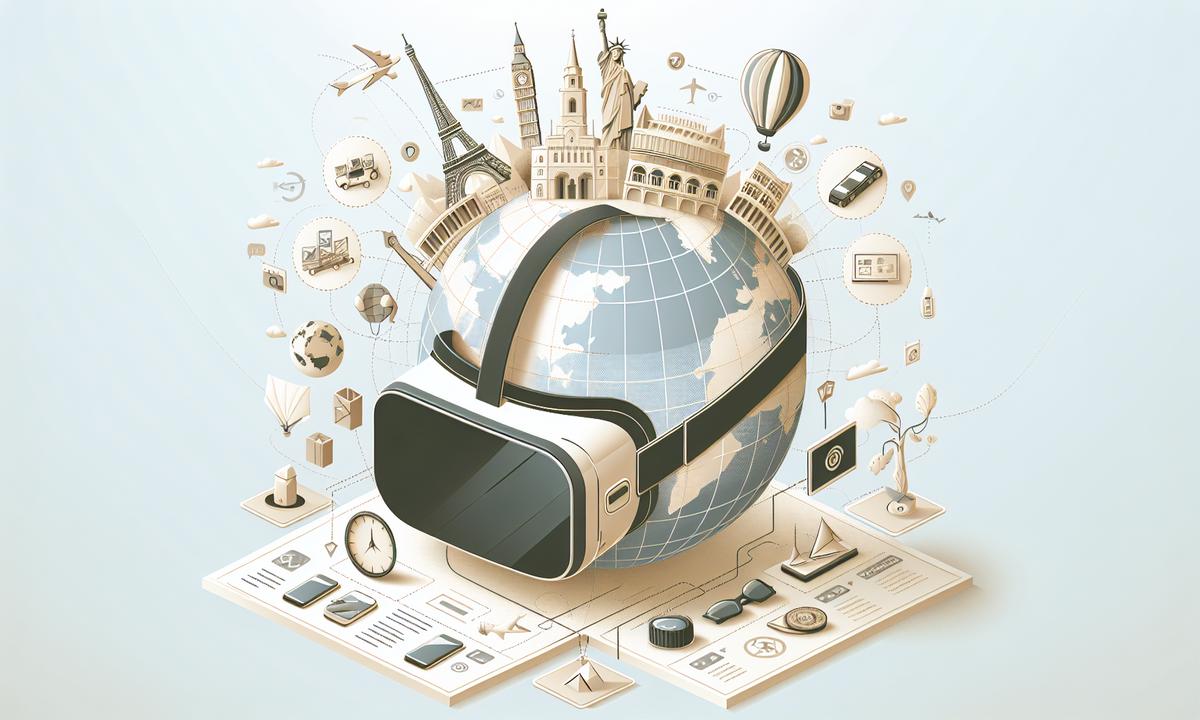Seamless travel isn’t just a buzzword—it’s rapidly becoming a real expectation among US travelers in 2025. With digital wallets, virtual tickets, and AI-powered itinerary planners shaping our journeys, a new technology is quietly revolutionizing the way we move and are rewarded: blockchain. By tackling the very heart of travel identity and loyalty programs, blockchain promises to unlock smoother experiences, heightened security, and truly instant rewards for everyone on the go.
Challenges of Traditional Travel Loyalty and Identity Systems
Despite tech leaps, outdated loyalty programs and identity checks cause friction and frustration for travelers. Loyalty points can take weeks to process, and many programs don’t interact, fragmenting experiences. Fraud is a constant threat. Repeated identity verifications at airports, hotels, or car rentals slow us down and create data theft vulnerabilities. Travelers expect more.
Travelers frequently encounter challenges, such as managing multiple passwords and fearing data breaches, as highlighted in guides like Travel Safe, Stay Secure: A Digital Nomad’s Guide to Cybersecurity on the Road. Current methods consume time and erode trust. The absence of interoperability among loyalty systems also hinders even experienced travelers from fully leveraging their benefits.
Loyalty fraud imposes billions in costs on the travel industry annually, leading to lost perks, broken trust, and damaged reputations. Data silos necessitate repeated Know Your Customer (KYC) checks for every new service, which is inconvenient for users and expensive for providers. With over 22% of US adults owning digital assets, the demand for secure digital identity and reward management is growing.
Blockchain’s Impact on Travel Loyalty Programs
Blockchain-powered travel loyalty programs streamline complex processes. Leveraging a secure, decentralized ledger, blockchain ensures every transaction is transparent and verified instantly. Smart contracts, which are automated agreements, facilitate immediate reward calculation and issuance. This eliminates intermediaries, delays, and restrictive point expiration dates, offering a more efficient system.
Imagine earning airline miles from a morning flight and instantly using them for a discounted hotel stay, all verified through smart contracts. This level of interoperability dismantles old barriers, enriching experiences and significantly boosting customer satisfaction. Discover more about technological integration in future travel in AI in Everyday Life: A Traveler’s Guide to Smart Tech & Future Journeys.
Fraud prevention is fundamental to blockchain’s design. Each loyalty transaction is recorded permanently, which deters manipulation and the creation of counterfeit points. This leads to less auditing for program managers and greater confidence for travelers that their rewards are authentic and readily available, ensuring a seamless experience for every booking or redemption.
For a more in-depth understanding of blockchain’s transformative effect on rewards, insights can be found in resources like How Blockchain is Revolutionizing Travel Loyalty Rewards or by exploring emerging trends and insights in blockchain travel loyalty programs, which offer further perspectives on these innovations.
Decentralized Identity Verification in Travel
Modern travel necessitates trust, yet traditional methods with extensive paperwork and isolated databases often fail to deliver. Blockchain introduces decentralized identity verification, allowing travelers to store tamper-proof digital credentials securely on their devices. These credentials are cryptographically protected, instantly verifiable, and empower users with control over their shared data, eliminating unnecessary oversharing at check-in points.
Decentralized identity can make airport security almost effortless. Envision using a single digital ID, accepted by airlines, hotels, and border control, all authenticated via blockchain. This concept is gaining momentum, with over 20 US states implementing cryptographically signed mobile driver’s licenses. Achieving nationwide acceptance, however, hinges on robust blockchain travel identity frameworks.
Explore how smart city innovations enhance the traveler’s journey in Navigating Tomorrow: Smart City Technology Enhancing the Urban Traveler Experience. Imagine the potential when blockchain is integrated into these evolving ecosystems. With blockchain-based identity verification, check-in processes become remarkably faster, and personal data privacy is significantly elevated for all users.
The regulatory landscape is continually evolving. Platforms must navigate compliance with new rules, such as the ‘Travel Rule’ for virtual asset service providers and the GENIUS Act for stablecoins, while upholding privacy. Blockchain addresses this by securing sensitive data and limiting disclosure, crucial for fostering trust in US travel loyalty blockchain initiatives. For more, consult Unlocking the Potential of Blockchain Technology in Travel.
Emerging Blockchain-Powered Loyalty Ecosystems
One of blockchain’s most compelling promises is the advent of open, interoperable travel loyalty ecosystems. Travelers could soon join networks where points from one brand seamlessly transfer to others—from airlines to ride-shares or local attractions. Rewards would be instantly and securely managed through blockchain smart contracts, creating unprecedented flexibility in how they are earned and spent.
At the core of this transformation is tokenization. Rewards evolve beyond mere points into digital assets that can be freely traded, pooled, or transferred. Automated smart contracts guarantee that loyalty accrual and redemption occur in real-time, effectively reducing operational overheads and significantly enhancing user engagement within these dynamic ecosystems.
This system empowers travelers to personalize reward strategies, consolidate various loyalty memberships, and prevent points from going to waste. For businesses, implementing blockchain means reduced fraud and improved customer retention. Explore Beyond the Smartwatch: Wearable Health Tech for the Modern Adventurer to see how digital assets could merge health, activity, and travel loyalty for truly personalized journeys.
Real-World Case Study: Unlocking Efficiency at Every Touchpoint
Consider "Ava," a business traveler journeying from New York to San Francisco. With a blockchain-powered digital ID, she checks in remotely, her identity instantly verified by both the airline and hotel. Her secure smartphone wallet holds miles and hotel points from multiple brands. After her flight, she uses airline miles for a rideshare and redeems hotel points for a dinner discount, all seamlessly powered by blockchain.
For Ava, this journey exemplifies convenience, heightened privacy, and true personalization. For each participating brand, blockchain ensures compliance, transparency, and integrity within loyalty programs. This technology simultaneously fosters dynamic cross-brand partnerships, leading to a more integrated and efficient travel experience for everyone involved in the ecosystem.
Overcoming Barriers: Adoption, Regulation, and Collaboration
Despite the potential, significant obstacles persist. Digital identity in the US is often fragmented by state, lacking a cohesive federal standard. Regulatory frameworks are continually evolving, making compliance a dynamic challenge as crypto rules adapt. Widespread industry adoption is crucial; travel businesses must embrace interoperable standards for blockchain reward programs to truly succeed and expand.
The future demands robust public-private collaboration, comprehensive consumer education, and solutions designed with both usability and privacy in mind. As regulatory landscapes shift, adaptable platforms will emerge as leaders, facilitating new levels of travel loyalty interoperability. This will ultimately enhance the overall blockchain customer experience in travel.
Blockchain and the Traveler of Tomorrow
Looking forward, blockchain is set to transform how the US and the global community perceive mobility, privacy, and rewards. This technology promises a unified, secure, and deeply personalized journey for every traveler, whether you are a millennial managing numerous loyalty apps or a Gen Z explorer seeking instant gratification in your adventures.
To glimpse future travel technology, including AI and VR, delve into Explore Before You Go: How Virtual Reality is Reshaping Travel Planning & Destination Discovery. When combined with blockchain, these innovations could fundamentally redefine how individuals experience, plan, and are rewarded for their travels, leading to a truly integrated and futuristic ecosystem.
FAQs: Blockchain in Travel Identity & Loyalty
How does blockchain enhance travel loyalty programs?
Blockchain facilitates real-time, fraud-proof point accrual and redemption, significantly reducing the need for intermediaries. It also enables loyalty programs to collaborate seamlessly across various brands, creating a more interconnected and flexible reward system for users worldwide.
Does blockchain-based travel identity improve data security?
Yes, it does. Decentralized identity empowers you to control precisely what data is shared. Its inherent cryptographic protection dramatically minimizes the risk of data breaches, ensuring a much safer environment for your personal information during travel.
When can widespread adoption of these technologies be expected?
Pilot programs are currently underway and demonstrating promising results. However, the emergence of nationwide standards, particularly for identity verification, will depend on increased collaboration between businesses and regulatory bodies to establish a unified framework.
Will blockchain-based loyalty points be universally accepted?
Universal acceptance is the ultimate objective. Interoperability is a crucial factor, enabling points to be transferred effortlessly between different airlines, hotels, and other travel service providers, thereby maximizing their utility and convenience for travelers.
What is the impact of regulation on these blockchain innovations?
Regulations play a significant role in shaping how digital identity and crypto payments function within the travel sector. Fortunately, blockchain technology is capable of balancing compliance requirements with individual privacy by allowing for controlled and limited data sharing.
Ready for Seamless Journeys?
Blockchain represents more than a fleeting trend; it is poised to become the fundamental infrastructure for the next generation of secure, seamless, and flexible travel experiences. As its adoption expands, we anticipate fewer obstacles, more personalized rewards, enhanced security, and a traveler who is empowered at every stage of their journey.
To experience the upcoming era in loyalty and travel, consider exploring demos or whitepapers from leading industry innovators. Stay informed by reading Journey to the Stars: Understanding the Rise of Commercial Space Travel & Its Impact on Exploration for insights into breakthroughs extending beyond traditional tourism. The path to seamless travel begins now, powered by blockchain, and designed with you in mind.





